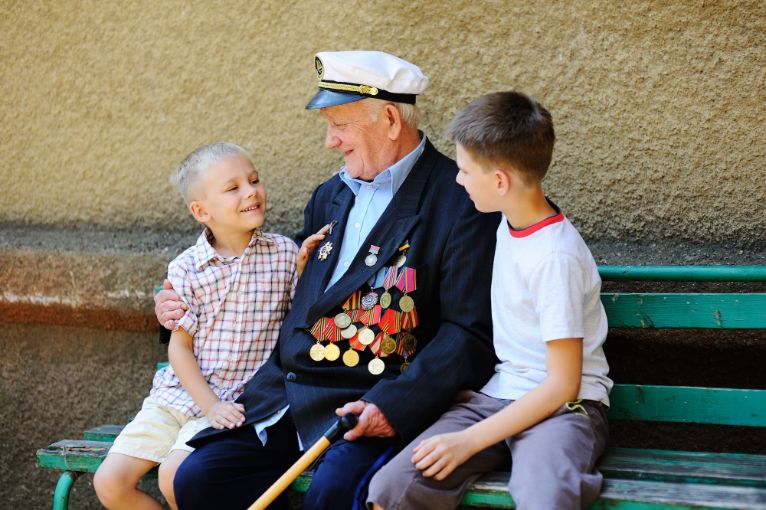War is not without sacrifice, and our Veterans have made that sacrifice courageously and selflessly. The battle scars from this service manifest themselves in many ways: physical scars, loss of limbs, Post Traumatic Stress Disorder, night terrors, and more.
Some of the wounds of service, however, are invisible. Of the Veterans who have spent time in active duty, 30% return home with some degree of hearing loss. Many Veterans return home with tinnitus as well.
What Causes Hearing Loss and Tinnitus in Veterans?
War is loud. We all know this to be true, but have you ever thought about the amount of noise are Veterans hear during their service? Guns, explosives, and military vehicles and equipment are all incredibly loud. Studies have shown that prolonged exposure to any noise higher than 85 decibels can result in hearing loss. Upon firing, many different kinds of guns produce sounds over 150 decibels.
For soldiers who are or have been overseas, the combination of instances of sudden, loud noises (a gun firing, an explosive going off, etc.) with the constant loud noises surrounding them (voices yelling, loud machinery, etc.) can cause very severe hearing loss. Many Veterans also report having Tinnitus, in which a ringing, buzzing or chirping occurs internally.
What is the Impact on Veterans?
The impact of hearing loss and tinnitus manifest themselves in different ways.
- Physically: The difficulty in hearing is just one of the frustrations these Veterans have to experience. Hearing loss and tinnitus can cause people to become less active, perform more poorly at work, and have difficulty engaging social situations.
- Mentally: We have often shared about the connection between our ears and our brain. Studies have shown a correlation between hearing loss and decreased cognitive function. Difficulty hearing conversation also makes it harder for people with hearing loss or tinnitus to follow instructions.
- Emotionally: Isolation caused by hearing loss causes many people to feel depressed or angry. The emotional strain of tinnitus is exhausting as well, and can lead to stress, depression, anxiety, and frustration.
What Can be Done to Help?
The good news is that there are ways to support Veterans who have hearing loss and Tinnitus.
Circle of Support
One of the most significant things that can be done to help Veterans who have hearing loss or Tinnitus is to offer mental and emotional support. A close circle of friends and family members who are patient, quick to listen, and encouraging have a lasting, positive impact. The Lubbock Vet Center will have resources for counseling and support groups for Veterans who do not have a close-knit circle of friends.
Hearing Aids
Our patients share that wearing hearing aids has given back much of the hearing they had lost. Wearing hearing aids makes social interaction easier, helps boost confidence in the workplace, and increases levels of activity. It also boosts emotional health by allowing the wearer to experience beloved sounds he or she had been missing.
Coping Techniques
Many of our patients with Tinnitus have had great success with wearing hearing aids with a combination sound instrument that helps block out the internal noise from the tinnitus. We have also seen great success with coping techniques, such as using a noise instrument, listening to audiobooks, and taking up a new hobby.
Hear Lubbock Program
We know that some Veterans cannot afford the cost of hearing aids, and we want to help. Our Hear Lubbock Outreach program refits donated hearing aids at little or no cost to the individual. Applicants must submit an application and qualify to be a part of this program.
Veterans deserve our deepest respect and gratitude for the way they have served our country. But, they also deserve our action. If you are a Veteran who has hearing loss or Tinnitus, please contact us for a free consultation. We can assess your needs and help you determine a hearing aid that best fits your needs and lifestyle.




